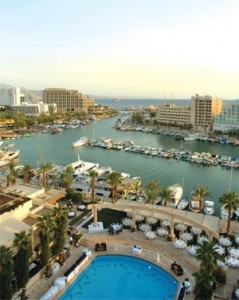
“What a difference a day makes.” This line from an old song could easily be expanded to demonstrate the political turmoil that alters a travel site from “friendly” to “avoid” in a few blinks of an eye.
The other evening while browsing through a few of my unpublished travel accounts, I ran across a story I had written in 1999. It had a newspaper article attached dated October 7, 2004. I read through the two stories and found myself mesmerized by the events – one about twelve years ago and a second just under eight.
I ask you to bear with me as I relive some of the past and compare it with the current policies reflected in our newspapers today.
In 1999 there seemed to be a lull – an uneasy peace – between the Palestinian population and the Israeli government. Bethlehem was classified as an “open city,” and tourists from around the world flocked to this historic town. Less than a block from the entrance to the “place of Christ’s birth” Palestinians shops sold souvenirs and joked easily with the tourists. We saw no reason not to exploit this calm and booked a trip.
It was our intent to visit Jerusalem, Bethlehem and some other usual tourist sites in Israel. We included a visit to Masada, the plateau which housed the final Jewish resistance to Roman rule. But to start our vacation we chose to spend a leisurely week in Eilat. Driving south in Israel, auto traffic along the Arabian Wadi which connects the Dead Sea to the Gulf of Acaba flowed freely, devoid of checkpoints. This Jewish resort area is located on the southern tip of Israel and borders the Gulf of Acaba. The weather here is pleasant, and the sea water is a near perfect temperature. If you look on a map you will see this tiny neck of Israel borders Jordan to the east and Egypt to the west. It is an ideal location to explore a segment of all three of these countries.
It was an easy trip, for example, to cross over the Jordanian border and motor to Petra. The trip is just over an hour’s ride, and although you are required to hire both an Israeli and a Jordanian tour guide, the visit to the fortress of Petra is a once-in-a-lifetime experience.
On our third night in Eilat, we decided to cross the border to Egypt. The Egyptian city just a few kilometers from the Israeli border is Taba. We took a taxi to the border in Israel and explained to the immigration officer that we planned to have dinner in Taba and return. He obviously was mystified as to why anyone would want do this, but with much eye rolling he passed us on. We walked a hundred yards along a road with high wire fences on either side – with apparently a field full of mines beyond that barrier.
The Egyptian border guard was also amused by our plan, but he stamped our passports and hailed us a cab which took us into Taba. We asked the cab driver for suggestions for dinner and a little shopping, and he suggested the Hilton Hotel on the east side of town.
Here stood the multi-storied building, in typical Hilton style. A circular drive led up to a large front entrance with a footman available to open the door for us. The lobby was populated with men in abayas, business suits, and casual clothes, while the ladies wore more feminine abayas, fashionable dresses, and even jeans. We shopped a bit, had cocktails and dinner, and at about nine o’clock in the evening retraced our steps back to Eilat.
As I mentioned in my introduction, there is an article attached to my story about this visit. On October 7, 2004, just as my first book was being printed, a vehicle drove up this beautiful circular drive in front of the Hilton. Just as the footman approached a large bomb was detonated – blowing the entire front of the building away and eventually collapsing almost the entire multi-storied hotel. The devastation was enormous, and the loss of life severe. The building was completely destroyed. But, to the best of my knowledge, in the intervening years it was totally renovated and today is once again, the Taba Hilton – a lovely resort hotel on the Gulf of Acaba.
There are windows of opportunity that open to us travelers. Often they stay open only a short period, and then they close for generations. Even today, as we read our daily papers, we are bombarded with stories of Palestinian/Israeli conflict, and the evolving “Arab Spring” taking place in Egypt. We must be alert – for most often these are just fleeting opportunities.
Leave a Reply